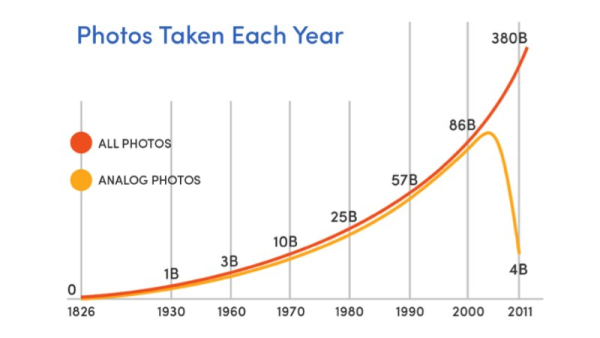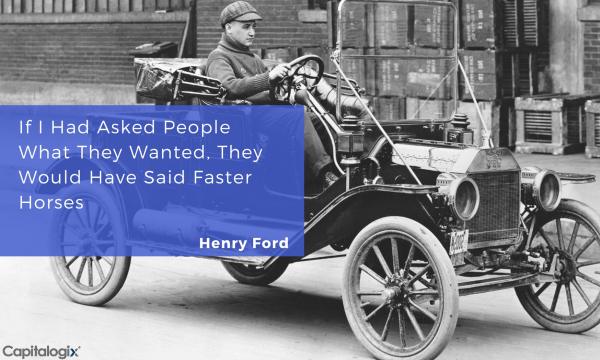Human's can't do a lot of things. Honestly, the fact that we're top of the food-chain is pretty miraculous.
We're slow, we're weak, and we're famously bad at understanding large numbers and exponential growth.
Our brains are hardwired to think locally and linearly.
It's a monumental task for us to fathom exponential growth … let alone its implications.
Think how many companies have failed due to that inability … Radioshack couldn't understand a future where shopping was done online and Kodak didn't think digital cameras would replace good ol' film. Blockbuster couldn't foresee a future where people would want movies in their mailboxes, because "part of the joy is seeing all your options!" They didn't even make it long enough to see "Netflix and Chill" become a thing.
via Diamandis
Human perception is linear. Technological growth is exponential.
There are many examples. Here is one Diamandis calls "The Kodak Moment."
In 1996, Kodak was at the top of its game, with a market cap of over $28 billion and 140,000 employees.
Few people know that 20 years earlier, in 1976, Kodak had invented the digital camera. It had the patents and the first-mover advantage.
But that first digital camera was a baby that only its inventor could love and appreciate.
That first camera took .01 megapixel photos, took 23 seconds to record the image to a tape drive, and only shot in black and white.
Not surprisingly, Kodak ignored the technology and its implications.
Fast forward to 2012, when Kodak filed for bankruptcy – disrupted by the very technology that they invented and subsequently ignored.
via Diamandis
Innovation is a reminder that you can't be medium-obsessed. Kodak's goal was to preserve memories. It wasn't to sell film. Blockbuster's goal wasn't to get people in their stores, it was to get movies in homes.
Henry Ford famously said: “If I had asked people what they wanted, they would have said faster horses.” Steve Jobs was famous for spending all his time with customers, but never asking them what they wanted.
Two of our greatest innovators realized something that many never do. Being conscientious of your consumers doesn't necessarily mean listening to them. It means thinking about and anticipating their wants and future needs.
Tech and A.I. are creating tectonic forces throughout industry and the world. It is time to embrace and leverage what that makes possible. History has many prior examples of Creative Destruction (and what gets left in the dust).
Opportunity or Chaos … You get to decide.
Onward!


